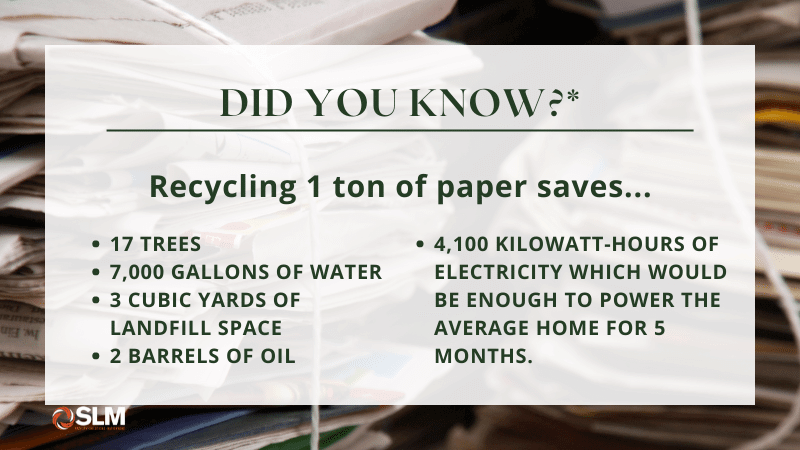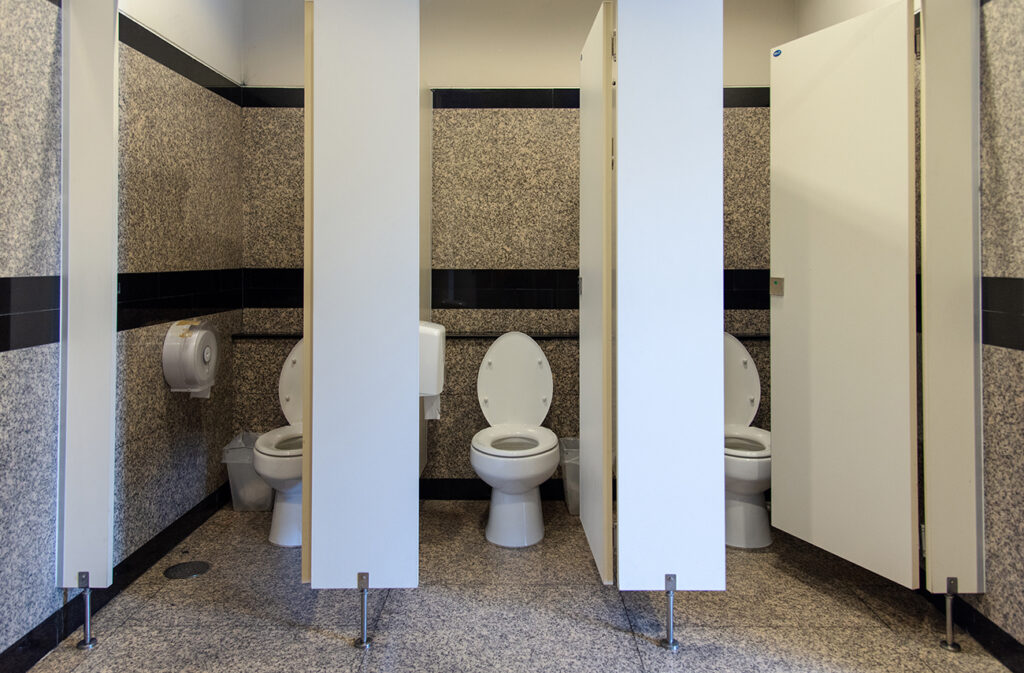Recycling. Remember how our parents drilled it into our heads? Recycle this. Don’t recycle that. The paper goes here. Seemed simple enough, right? Then in elementary school, our teachers taught us how recycling impacts the environment. As we grew and continued through life, we discovered more about recycling and developed a greater understanding of the impact recycling has on more than just the environment.
Today, it’s essential for businesses and their employees to understand the ever-changing landscape of recycling and its rules. Thus ensuring they stay in compliance while reaping the numerous benefits waiting for you.
Why Recycle?
With what seems like a simple question turns into a complex one. Why should your business recycle? Does one business matter in the grand scheme of recycling? Or my favorite, WIIIFY? What is in it for you?
According to the EPA, your business and its practices matter for the following reasons.
- Prevent pollution caused by reducing the need to harvest new raw materials
- Saves energy
- Reduces greenhouse gas emissions contributing to global climate change
- Help sustain the environment for future generations
- Saves money $$
- Reduce the amount of waste needed to be recycled or sent to landfills and incinerators
- Use products to their fullest extent
What Happens After Pickup?
Your recyclables go from your location to Material Recovery Facilities or MRFs. At MRFs, recyclables are separated based on their composition. Then cleaned and sent to make new products.
But how does a MRF work?
- Trucks unload recycling on the tipping floor.
- A front loader pushes it to the conveyor belt.
- Employees scan through the material and pull out contaminations, bulky items, etc.
- They separate cardboard first. To make this job easier, a rotating shaft assists in moving the cardboard to the top of the pile.
- The next area separates 2-D and 3-D items.
- Perform a quality check.
- Removal of textile material.
- A large magnet removes steel cans.
- An eddy current repels aluminum cans and foils.
- Glass bottles and jars are shattered and screened out.
- Next, a manual sorter separates the remaining plastic by code.
- Finally, the material collected goes to manufacturers as raw material.
However, snags can occur if loads are contaminated. Contaminated loads potentially clog machines or cause the load to be declared unrecyclable. To simply put it, it slows down the facility’s efficiency and potentially damages the equipment.

But What Are the Benefits of Recycling?
There are numerous benefits of recycling ranging from improving brand image and making it more sought after to increasing your bottom line. Your customers have become more eco-conscious and looking for brands that match their thoughts on the topic. According to a survey, if you aren’t assisting your customers to improve their social and environmental footprint, you may be letting them down. Customers, especially millennials, are willing to pay more for eco-friendly products. By utilizing and promoting recycling within your facility, you may attract more customers, thus improving your foot traffic and conversion.
Save money on trash bills by recycling. It’s typically cheaper to recycle but talk to your waste supplier beforehand to see all your options. The average individual creates 5.91 pounds of waste per day with the average of 1.51 pounds being recyclable goods. This means your facility creates 100 pounds of trash and roughly 25% are recyclable goods. If properly recycled, your waste will need less service resulting in less money going out of your business.
What Else Can Be Potentially Be Recycling?
When we say recycling, we tend to think of plastic, paper, and metal. However, it’s important to note there are other items potentially in your facility you could be recycling.
Cooking Oil or Yellow Grease
Cooking Oil, or yellow grease, is recyclable. Highly sought-after yellow grease transforms into various other products such as biodiesel, animal feed and consumer products such as cosmetics and soaps. So before you get rid of it, look into recycling it. Depending on your hauler, you potentially can see a rebate.
How to get the highest rebate? Ensure your oil stays as clean a possible and store it in a proper receptacle. Based on your needs and how much oil your facility uses, you can select from a variety of storage units. This includes bulk tanks and direct connect self-storage units.
Composting
Composting has been a hot topic for many counties across the nation. Mandates exist in some areas regarding composting. But why do it? Not only is it not helping the environment but the composting will be sent to create nutrient-rich soil. Thus assisting farmers in their crop production for the following year. Talk about full circle. It is relatively easy to add to your existing recycling program.
Light Bulbs
Fluorescent bulbs contain mercury and therefore considered hazardous waste. You increase the risk of the bulbs becoming broken, buried, or incinerated if thrown into your regular waste stream. Ultimately, if damaged, the mercury is released into the environment. We recommend signing up for a bulb recycling program. Most programs send you a box to place your old, burned-out lights in. Once you fill the box, you ship it to be disposed of properly.
In Conclusion
The numerous benefits of recycling exist for you and your business to utilize. It affects several aspects of your business ranging from helping you make eco-friendly decisions to potential rebates and more. To maximize the benefits, you need all hands on deck to ensure your recycling properly and efficiently. The last thing you need is a contamination causing all your hard-work to go down the drain.
We also recommend partnering with a reputable company, such as SLM Facility Solutions Nationwide, to ensure you reaping the benefits while receiving comprehensive coverage based on your company’s needs and goals. SLM Facility creates and executes customizable facility maintenance plans tailored to each of your facilities’ needs and adheres to mandates. We streamline your facility maintenance needs from top to bottom ranging from hoods, plumbing, HVAC and 30+ other services. Contact us today to learn more about facilities management services for your business.



